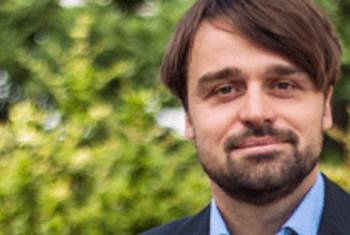Justin Valasek How Does Empathy Affect Trade-Offs People Are Willing to Make Between Their Own and Other’s Income?
Justin Valasek is a Research Fellow at the Research Unit Economics of Change at the Berlin Social Science Center (WZB) and a affiliate member of CESifo Munich. He holds a PhD from Duke University (NC, USA). His fields of research are political economy, development, and behavioral economics. Valasek was a Max Weber Fellow at the European University Institute.
Area of Research
Collective Decision Making, Norms and Identity, Corruption, Developmental Political Economy
since 2012
2015
Visting Scholar
Columbia University, New York
Department of Political Science
2011-2012
Max Weber Fellow
European University Institute
2011
PhD in Economics
Duke University, Department of Economics
2004
Bachelor in Economics and Mathematics
University of Oregon
- American Journal of Political Science
- Journal of Public Economics
- European Economic Review
- Public Choice
- Journal of Economic Behavior and Organization
- The Journal of Economic Inequality
- The Journal of Economics
Fellowships
- Affiliate Member CESifo Research Network
Prizes
- CESifo Distinguished Research Affiliate Prize (2014)
- Klaus Liebscher Award (2013)
 © WZB
© WZB

Berlin Social Science Centre (WZB)
The WZB Berlin Social Science Center investigates societal change. The research focus is on problems of modern societies in a globalized world. Research areas include education and work, migration and the dynamics of political systems, market and choice, international politics and law. WZB research is theory-based, problem-oriented, often long-term and mostly based on international comparisons. Around 160 German and international researchers work at the WZB, including sociologists, political scientists, economists, legal scholars and historians. Research results are published for the scientific community as well as for experts in politics, business, the media and civic organizations. As a non-university research institute, the WZB is member of the Leibniz-Association. The WZB closely cooperates with universities in Berlin and beyond as well as with research institutions abroad. The WZB was founded in 1969 by members of the German parliament. The WZB is funded by the Federal government, he state of Berlin, and the community of German states. (Source: WZB)
Faculty
Markets and Choice
"Research in this area focuses on economic decision making and its societal consequences. It examines the role of institutions and markets and studies economic learning, development and social evolution. It considers the profound interaction of psychology and economics and is often interdisciplinary in nature. Applications include the analysis of political processes, the emergence of prosocial behavior, and market design, in particular for matching problems." (Source)
Map
The research presented in this video focuses on the question how empathy affects economic choice-behavior. In order to refine existing models of decision-making, two different concepts of empathy “imagine-self” and “imagine-other”, the latter requiring a higher level of sophistication, were included in game theoretic models. As JUSTIN VALASEK explains, it is established that empathy does not necessarily lead to more altruistic behavior and in some settings even the reverse is the case.
LT Video Publication DOI: https://doi.org/10.21036/LTPUB10132
A Note on Empathy in Games
- Jan Grohn, Steffen Huck and Justin Valasek
- Journal of Economic Behavior & Organization
- Published in 2014









